Find Help
More Items From Ergsy search
-
What is alcohol poisoning?
Relevance: 100%
-
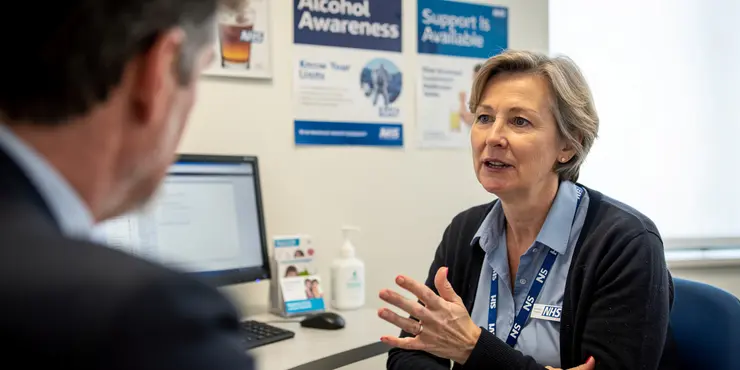
Alcohol Awarerness Week
Relevance: 100%
-
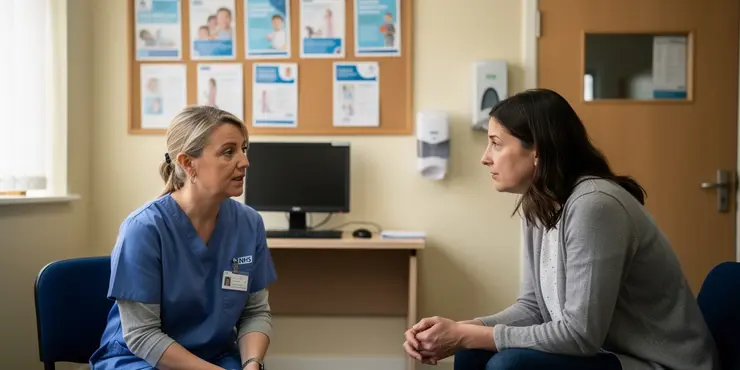
FASD Foetal alcohol
Relevance: 95%
-

5 Facts about Alcohol and Britain
Relevance: 93%
-

What is safe alcohol consumption in Adults?
Relevance: 90%
-
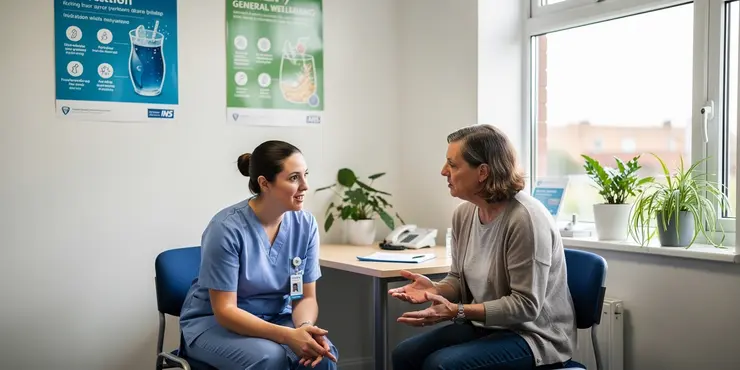
Should I avoid alcohol during a heatwave?
Relevance: 90%
-

Can alcohol worsen sleep apnea?
Relevance: 89%
-
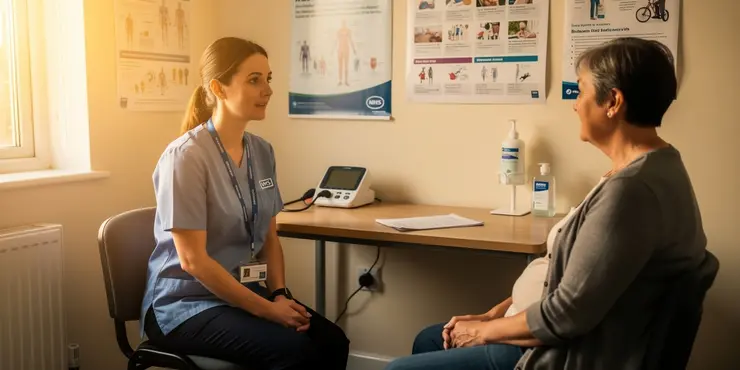
Is it possible for alcohol alone to cause similar symptoms?
Relevance: 87%
-
Can alcohol be consumed while taking Wegovy?
Relevance: 86%
-
How does alcohol tolerance relate to binge drinking?
Relevance: 84%
-
Why is methanol sometimes found in illegally produced alcohol?
Relevance: 83%
-
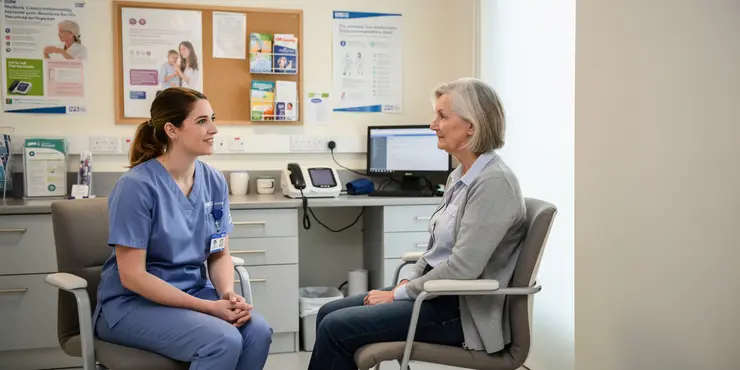
What is Alcohol Rehab?
Relevance: 81%
-
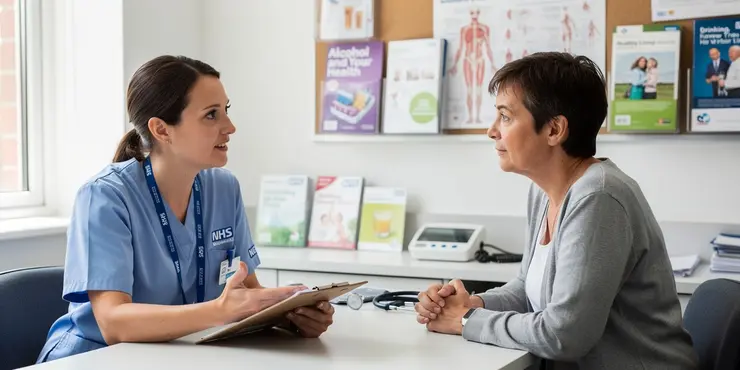
What role does alcohol consumption play in bowel cancer risk?
Relevance: 78%
-

Living with Foetal Alcohol Spectrum Disorder (FASD), a mum’s journey (full version)
Relevance: 71%
-

Can binge drinking lead to addiction?
Relevance: 35%
-

How can one reduce the risk of binge drinking?
Relevance: 34%
-
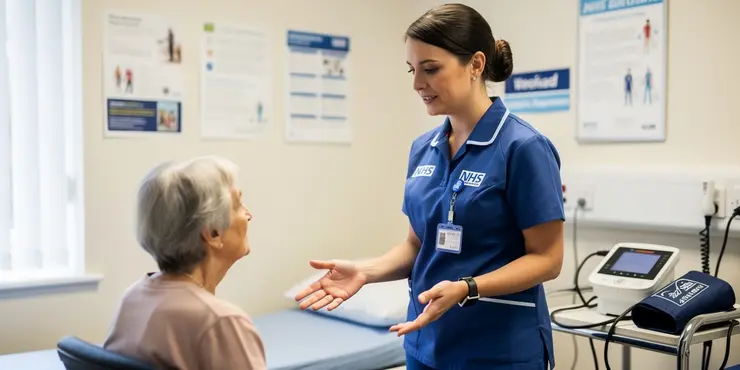
What are the differences between methanol and ethanol?
Relevance: 33%
-

Alcohol-Related Deaths in Scotland
Relevance: 32%
-
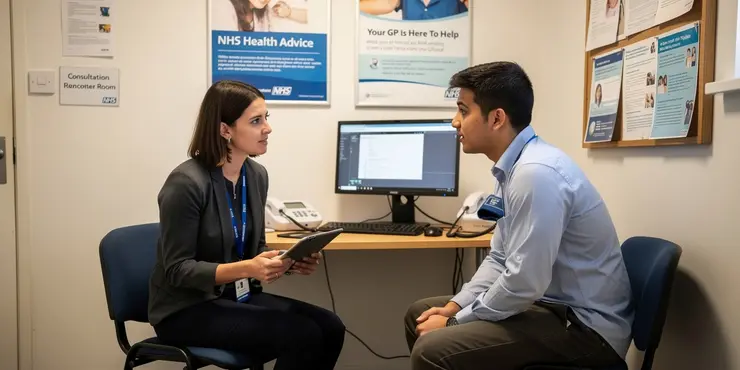
How does driving under the influence relate to dangerous driving?
Relevance: 32%
-

How is binge drinking typically defined?
Relevance: 32%
-

Are there cultural factors in binge drinking?
Relevance: 32%
-
Why is binge drinking common among young adults?
Relevance: 32%
-
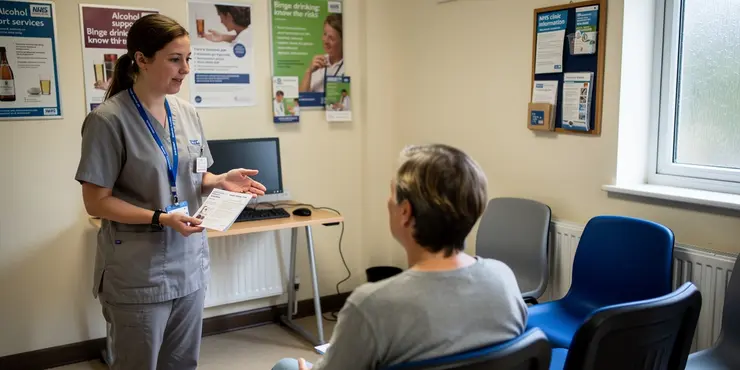
What resources are available for someone struggling with binge drinking?
Relevance: 32%
-

What are the risks associated with binge drinking?
Relevance: 32%
-

What is binge drinking?
Relevance: 32%
-
How does binge drinking affect mental health?
Relevance: 31%
-

What is fomepizole and how does it work?
Relevance: 31%
-
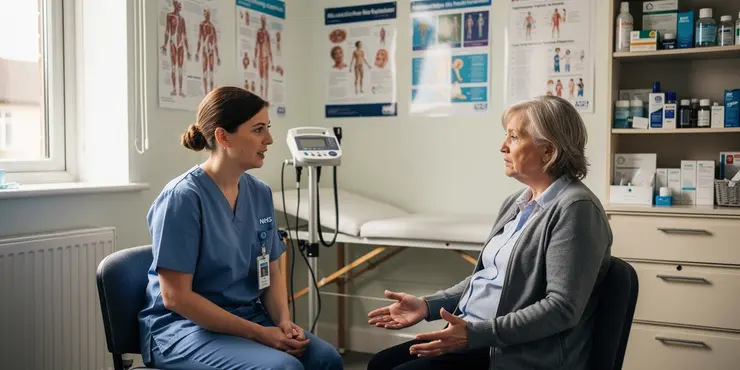
Can binge drinking affect physical health?
Relevance: 30%
-
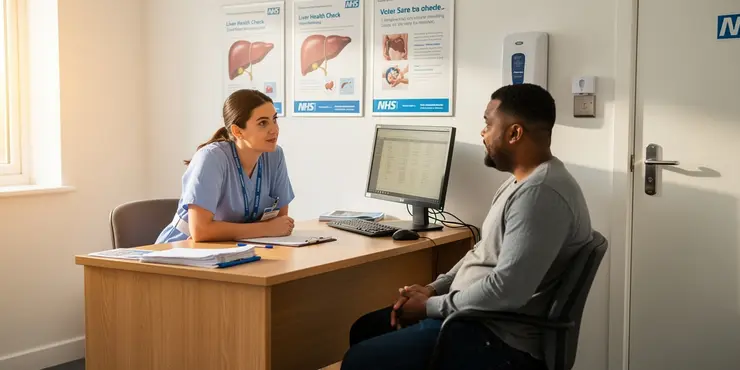
Liver disease | NHS
Relevance: 30%
-
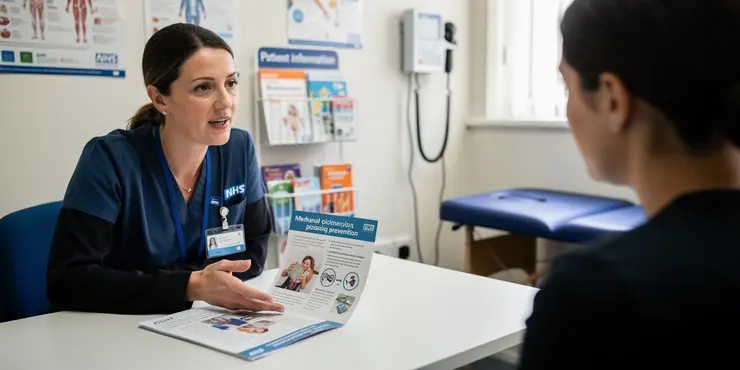
How can methanol poisoning be prevented?
Relevance: 29%
-

How does methanol poisoning differ from ethanol poisoning?
Relevance: 29%
-
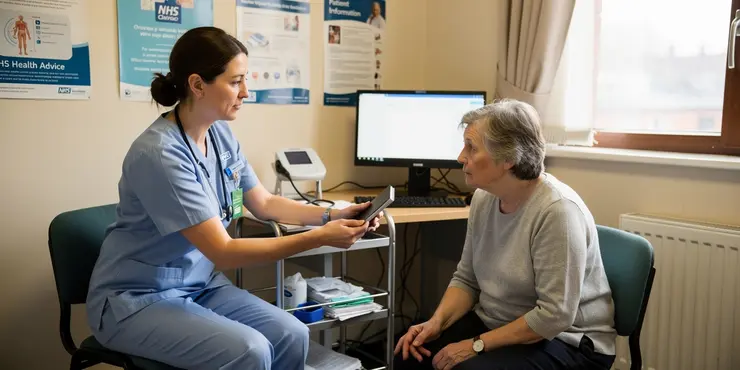
What is methanol poisoning?
Relevance: 29%
-
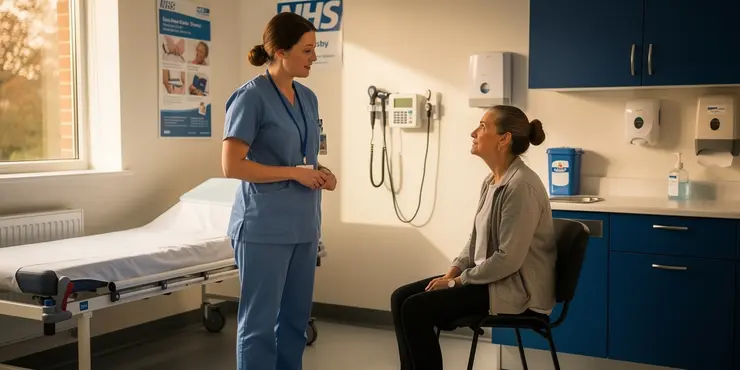
How quickly do symptoms appear after a drink has been spiked?
Relevance: 29%
-

How does binge drinking affect the brain?
Relevance: 29%
-

Is binge drinking more common in any specific demographic?
Relevance: 28%
-

Can I taste or smell if my drink has been spiked?
Relevance: 27%
-

How does diet affect blood pressure?
Relevance: 27%
-
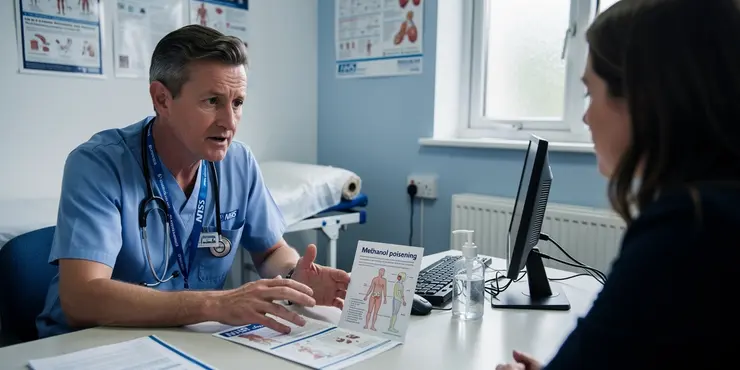
Can methanol poisoning cause permanent damage?
Relevance: 27%
-
Can lifestyle changes also help prevent colorectal cancer?
Relevance: 27%
-
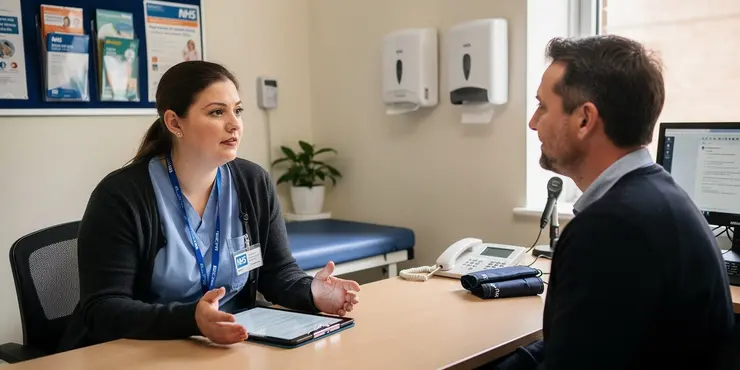
Are there any customs regulations to be aware of when entering France or Spain?
Relevance: 27%
Alcohol Awareness Week
Introduction
Alcohol Awareness Week is a crucial initiative in the United Kingdom, dedicated to shedding light on the impact of alcohol on individuals, families, and communities. Taking place annually, this week-long event encourages conversations around alcohol consumption, promotes resources for those struggling, and advocates for healthier choices and responsible drinking habits.
The Importance of Awareness
In the UK, alcohol misuse contributes to a range of societal issues, including health complications, family breakdowns, and economic costs. By raising awareness, Alcohol Awareness Week aims to educate the public about the risks associated with excessive drinking. It seeks to empower individuals with knowledge, helping them make informed decisions about their alcohol intake.
Health Implications
Persistent heavy drinking can lead to severe health problems such as liver disease, heart problems, mental health issues, and certain cancers. Highlighting these potential health risks is vital during Alcohol Awareness Week. Additionally, it serves as a reminder of the UK's guidelines on alcohol consumption: no more than 14 units per week for both men and women, spread evenly across three or more days.
Support and Resources
One of the key aspects of Alcohol Awareness Week is to provide support and resources to those affected by alcohol misuse. Various organizations and charities in the UK, such as Alcohol Change UK, offer helplines, counseling services, and online tools to assist individuals and families. It's important everyone knows where to turn for help, advice, and treatment options.
Community Involvement
Communities across the UK play a pivotal role in Alcohol Awareness Week. Schools, workplaces, healthcare providers, and local organizations come together to host events, workshops, and informational sessions. These activities foster a supportive environment where people can share experiences, learn from one another, and build a community committed to reducing alcohol-related harm.
Conclusion
Alcohol Awareness Week provides a significant platform for addressing the complex issues associated with alcohol consumption in the UK. By focusing on education, support, and community involvement, this initiative aims to create lasting change that can improve public health and well-being. Whether you're seeking to cut back, support a loved one, or simply learn more, Alcohol Awareness Week offers valuable resources and insights.
Alcohol Awareness Week
Introduction
Alcohol Awareness Week is an important event in the UK. It highlights how alcohol affects people and communities. This event happens every year. It helps people talk about drinking, find resources for those who need help, and promote healthy and safe drinking habits.
The Importance of Awareness
In the UK, drinking too much alcohol can cause many problems. These include health issues, family problems, and money troubles. Alcohol Awareness Week helps teach people about the dangers of drinking too much. It gives people the information they need to make good choices about drinking.
Health Implications
Drinking a lot over time can make you really sick. It can hurt your liver, heart, and mind. It can also cause some types of cancer. During Alcohol Awareness Week, it is important to talk about these health risks. People are reminded that men and women should not drink more than 14 units of alcohol in a week, spread over at least three days.
Support and Resources
A big part of Alcohol Awareness Week is helping people who have problems with alcohol. There are many groups and charities in the UK, like Alcohol Change UK, that offer help. They have phone lines, counseling, and online tools for people and families. It's important to know where to find help, advice, and treatment.
Community Involvement
Communities in the UK are very important during Alcohol Awareness Week. Schools, workplaces, doctors, and local groups hold events, workshops, and talks. These activities help people support each other, share their stories, and learn. Together, they work to reduce problems caused by alcohol.
Conclusion
Alcohol Awareness Week is a chance to talk about the problems that alcohol can cause in the UK. It focuses on teaching, helping, and community support to make things better. Whether you want to drink less, help someone, or learn more, Alcohol Awareness Week has useful information and resources.
Frequently Asked Questions
What is Alcohol Awareness Week?
Alcohol Awareness Week is an annual campaign in the United Kingdom aimed at encouraging people to think about their drinking habits, understand the risks of alcohol misuse, and make informed health choices.
When does Alcohol Awareness Week take place?
Alcohol Awareness Week typically takes place in November each year, although the exact dates can vary.
Who organises Alcohol Awareness Week?
Alcohol Awareness Week is organised by Alcohol Change UK, a charity dedicated to reducing the harm caused by alcohol.
Why is Alcohol Awareness Week important?
Alcohol Awareness Week is important because it raises awareness about the health risks associated with alcohol, encourages responsible drinking, and provides resources and support for those affected by alcohol issues.
How can I participate in Alcohol Awareness Week?
You can participate by joining local events, sharing information on social media, attending online workshops or seminars, and spreading awareness within your community.
What are the health risks associated with alcohol consumption?
Excessive alcohol consumption can lead to a range of health issues, including liver disease, heart problems, mental health issues, and an increased risk of cancers.
How much alcohol is considered safe to drink?
The UK Chief Medical Officers' guideline for both men and women is to not regularly drink more than 14 units of alcohol per week, and it's best to spread this amount evenly over three or more days.
What is a unit of alcohol?
A unit of alcohol is a measure used to quantify the amount of pure alcohol in a drink. One unit is equivalent to 10ml or 8g of pure alcohol.
How can I reduce my alcohol consumption?
You can reduce your alcohol consumption by setting limits, having alcohol-free days, seeking support from friends and family, and finding alternative activities that don’t involve drinking.
What are the signs of alcohol dependency?
Signs of alcohol dependency include a strong craving for alcohol, loss of control over drinking, experiencing withdrawal symptoms, and neglecting responsibilities or activities in favour of drinking.
Where can I find support if I’m worried about my drinking?
Support is available from various organisations such as Alcohol Change UK, Drinkaware, and local alcohol support services. Your GP can also provide advice and referrals.
Can alcohol consumption affect mental health?
Yes, alcohol consumption can negatively impact mental health by causing or exacerbating conditions such as depression, anxiety, and stress.
What resources are available during Alcohol Awareness Week?
Resources during Alcohol Awareness Week typically include informational materials, local events and workshops, webinars, and online tools to help individuals assess and change their drinking habits.
How does alcohol affect different age groups?
Alcohol can have different effects depending on age. Young people are particularly vulnerable to its impacts on brain development, while older adults may experience increased sensitivity and health problems.
What is the legal drinking age in the UK?
The legal drinking age in the UK is 18. However, individuals aged 16 or 17 can drink beer, wine or cider with a meal if bought by an adult and accompanied by an adult.
What is Alcohol Awareness Week?
Alcohol Awareness Week is a special time to learn about alcohol. It helps us understand how alcohol can affect people. During this week, we can find ways to get help if we need it.
Here are some things that may help:
- Talk to a trusted adult, like a parent or teacher.
- Use simple books or videos online to learn.
- Ask questions if you are unsure about something.
- Remember, it's okay to ask for help.
Alcohol Awareness Week happens every year in the UK. It helps people think about how much alcohol they drink, learn about the dangers of drinking too much, and make healthy choices.
When is Alcohol Awareness Week?
Alcohol Awareness Week usually happens in November every year. The exact dates can change.
Who plans Alcohol Awareness Week?
Someone plans Alcohol Awareness Week to help people learn about alcohol. They teach why it's important to be careful with drinking too much. This person's job is to help everyone stay safe and healthy.
If you want to understand more, you can use tools like audiobooks to listen to information. Drawing pictures or using flashcards can also help you learn better. You can ask a friend or an adult to help if you have questions.
Alcohol Awareness Week is put together by Alcohol Change UK. This is a group that helps people have a healthier relationship with alcohol.
Why Does Alcohol Awareness Week Matter?
Alcohol Awareness Week is important because it helps people learn about the effects of alcohol. It also shows us how to make healthy choices. It's a time for learning and talking about alcohol. This week helps us think about safe drinking and support others who need help.
Here are some tips to understand and remember the information:
- Use pictures or videos to help understand the message.
- Talk with someone you trust about what you learn.
- Write down any questions you have and ask for help to find answers.
- Take breaks while learning to help your brain rest.
Alcohol Awareness Week is important. It helps people learn about the dangers of alcohol, talks about drinking safely, and gives help to those who have problems with alcohol.
How can I join Alcohol Awareness Week?
You can join in by going to local events. You can also share things on social media, go to online workshops or seminars, and tell people around you to help spread the word.
What can happen to your health if you drink alcohol?
Drinking alcohol can hurt your body and mind. Here are some problems it can cause:
- Liver Damage: Drinking a lot can hurt your liver. Your liver helps clean your blood.
- Heart Trouble: Alcohol can make your heart weak or beat funny.
- Memory Problems: Drinking a lot might make you forget things or think slowly.
- Stomach Ache: Alcohol can make your tummy hurt.
- Bad Decisions: It can make you do things you might not do if you weren’t drinking.
Here are ways to get help:
- Talk to a doctor or nurse.
- Find a support group with people who understand.
Drinking too much alcohol can make you sick. It can hurt your liver, heart, and mind. It can also cause cancer.
How much alcohol can you drink safely?
Drinking too much alcohol can be bad for you.
Adults can have a small amount of alcohol, but it is important to be careful.
Tips to stay safe:
- Drink slowly.
- Have some water between drinks.
- Eat food before or while drinking.
If you are not sure how much is safe, ask a doctor or a nurse. They can help you know what is right for you.
The UK health experts say both men and women should not drink more than 14 units of alcohol in a week. It's a good idea to split this up and drink over three or more days.
Here are some tips to help you:
- Keep a diary to note how much you drink each day.
- Use a measuring cup to know how much is in a drink.
- Try apps that remind you how much you have drunk.
What is a unit of alcohol?
A unit of alcohol is a way to measure drinks. It tells us how much pure alcohol is in a drink.
Here is a simple guide:
- A small glass of wine (125ml) is about 1.5 units.
- A can of beer (330ml) is about 1.7 units.
- A single shot of spirits (25ml) is about 1 unit.
Remember, it is good to drink safely. Ask someone you trust or use a chart to help you keep track of units.
A unit of alcohol tells us how much pure alcohol is in a drink. One unit is the same as 10ml or 8g of pure alcohol. This is about as much as in a small drink like half a pint of beer or a small glass of wine.
How can I drink less alcohol?
You can drink less alcohol by doing these things:
- Set a limit on how much you will drink.
- Have days when you don’t drink at all.
- Ask your friends and family to help you.
- Find fun things to do that don’t involve drinking alcohol.
What are the signs of alcohol dependency?
People who depend on alcohol might:
- Feel like they need to drink alcohol often.
- Find it hard to stop drinking once they start.
- Feel bad or ill if they do not drink.
- Drink more to feel the same effects.
- Stop doing activities they enjoy because of drinking.
- Keep drinking even when it causes problems.
Here are some ways to get help:
- Talk to a trusted adult or a doctor.
- Join a support group.
- Use apps that help you track your drinking.
Signs that someone might need alcohol include:
- They really want to drink alcohol a lot.
- They can't stop drinking once they start.
- They feel sick or shaky when they don't drink.
- They stop doing important things because they want to drink instead.
It can help to talk to a trusted adult if you or someone you know needs help. There are apps and people who can support you, like friends, family, or a doctor.
Who can help me if I am worried about drinking too much?
You can get help from places like Alcohol Change UK, Drinkaware, and local support groups for alcohol. Your doctor can also give you advice and send you to people who can help.
Does drinking alcohol change how we feel or think?
Drinking alcohol can change how we feel in our minds. It might make us feel happy or sad. It can be harder to think clearly. Drinking too much alcohol is not good for our brain health.
If you or someone you know feels worried about drinking, talk to a trusted adult or a doctor. They can help.
You can also use tools like picture charts, simple apps, or watch videos made for kids to understand more about alcohol and the brain.
Yes, drinking alcohol can be bad for your mental health. It can make you feel sad, worried, or stressed.
Here are some tips to help you:
- Talk to someone you trust about how you're feeling.
- Try to find fun activities that do not involve drinking.
- If you need help, talk to a teacher, family member, or doctor.
What help can you get during Alcohol Awareness Week?
During Alcohol Awareness Week, there is help available. You can find things like information packs, local events, and workshops. There are also webinars and online tools to help people look at how they drink and make changes if they need to.
How does alcohol affect people of different ages?
Alcohol can affect people differently depending on how old they are. Here is how:
- Young People: Alcohol can be very dangerous. It can make it hard to think and make good choices. It can also affect school and growing up.
- Adults: Some adults drink alcohol at parties or with friends. Too much alcohol can still be harmful. It can cause health problems and make it dangerous to drive.
- Older People: Alcohol can be more risky when you are older. It can affect medicines and make health problems worse.
For help understanding, try using pictures or talking with someone you trust.
Alcohol affects people in different ways depending on how old they are.
Young people are still growing, and alcohol can hurt how their brains grow.
Older people might have health problems or feel alcohol more strongly.
How old do you have to be to drink alcohol in the UK?
In the UK, you must be 18 years or older to buy alcohol. This means you can go to a pub, bar, or shop and buy drinks like beer, wine, or spirits when you are 18 or older.
If you are under 18, you cannot buy alcohol. It's the law.
If you find reading hard, you can ask someone to help you or use tools that read text out loud. These can make understanding information easier.
In the UK, you have to be 18 to drink alcohol. But, if you are 16 or 17, you can have beer, wine, or cider with your meal. An adult has to buy it for you and be with you while you drink it.
Useful Links
This website offers general information and is not a substitute for professional advice.
Always seek guidance from qualified professionals.
If you have any medical concerns or need urgent help, contact a healthcare professional or emergency services immediately.
Some of this content was generated with AI assistance. We’ve done our best to keep it accurate, helpful, and human-friendly.
- Ergsy carfully checks the information in the videos we provide here.
- Videos shown by Youtube after a video has completed, have NOT been reviewed by ERGSY.
- To view, click the arrow in centre of video.
- Most of the videos you find here will have subtitles and/or closed captions available.
- You may need to turn these on, and choose your preferred language.
- Go to the video you'd like to watch.
- If closed captions (CC) are available, settings will be visible on the bottom right of the video player.
- To turn on Captions, click settings .
- To turn off Captions, click settings again.
More Items From Ergsy search
-
What is alcohol poisoning?
Relevance: 100%
-

Alcohol Awarerness Week
Relevance: 100%
-

FASD Foetal alcohol
Relevance: 95%
-

5 Facts about Alcohol and Britain
Relevance: 93%
-

What is safe alcohol consumption in Adults?
Relevance: 90%
-

Should I avoid alcohol during a heatwave?
Relevance: 90%
-

Can alcohol worsen sleep apnea?
Relevance: 89%
-

Is it possible for alcohol alone to cause similar symptoms?
Relevance: 87%
-
Can alcohol be consumed while taking Wegovy?
Relevance: 86%
-
How does alcohol tolerance relate to binge drinking?
Relevance: 84%
-
Why is methanol sometimes found in illegally produced alcohol?
Relevance: 83%
-

What is Alcohol Rehab?
Relevance: 81%
-

What role does alcohol consumption play in bowel cancer risk?
Relevance: 78%
-

Living with Foetal Alcohol Spectrum Disorder (FASD), a mum’s journey (full version)
Relevance: 71%
-

Can binge drinking lead to addiction?
Relevance: 35%
-

How can one reduce the risk of binge drinking?
Relevance: 34%
-

What are the differences between methanol and ethanol?
Relevance: 33%
-

Alcohol-Related Deaths in Scotland
Relevance: 32%
-

How does driving under the influence relate to dangerous driving?
Relevance: 32%
-

How is binge drinking typically defined?
Relevance: 32%
-

Are there cultural factors in binge drinking?
Relevance: 32%
-
Why is binge drinking common among young adults?
Relevance: 32%
-

What resources are available for someone struggling with binge drinking?
Relevance: 32%
-

What are the risks associated with binge drinking?
Relevance: 32%
-

What is binge drinking?
Relevance: 32%
-
How does binge drinking affect mental health?
Relevance: 31%
-

What is fomepizole and how does it work?
Relevance: 31%
-

Can binge drinking affect physical health?
Relevance: 30%
-

Liver disease | NHS
Relevance: 30%
-

How can methanol poisoning be prevented?
Relevance: 29%
-

How does methanol poisoning differ from ethanol poisoning?
Relevance: 29%
-

What is methanol poisoning?
Relevance: 29%
-

How quickly do symptoms appear after a drink has been spiked?
Relevance: 29%
-

How does binge drinking affect the brain?
Relevance: 29%
-

Is binge drinking more common in any specific demographic?
Relevance: 28%
-

Can I taste or smell if my drink has been spiked?
Relevance: 27%
-

How does diet affect blood pressure?
Relevance: 27%
-

Can methanol poisoning cause permanent damage?
Relevance: 27%
-
Can lifestyle changes also help prevent colorectal cancer?
Relevance: 27%
-

Are there any customs regulations to be aware of when entering France or Spain?
Relevance: 27%


